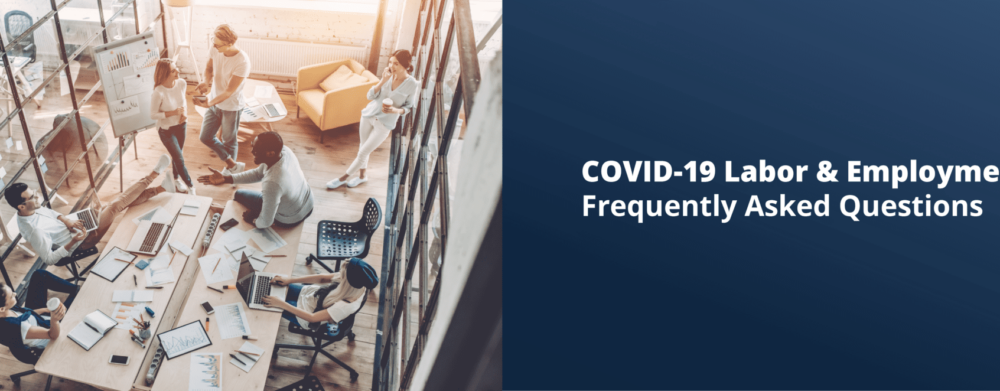The spread of COVID-19 presents both employers and employees with considerable challenges. The subsequent frequently asked questions are intended to address some of the common questions employees might have.
Because the situation is dynamic, you should check back for the latest developments and additional guidance on these topics.
For employees who do not experience symptoms, or only mild, temporary symptoms, COVID-19 standing by itself would not constitute a “disability” under the ADA, as it would be considered a temporary, non-chronic impairment with little or no long-term impact (i.e., it would fall in the same category as a broken limb or influenza). These types of illnesses are not viewed as disabilities under the ADA. However, an employee may be entitled to ADA protections if their reaction to COVID-19 is severe or if it complicates or aggravates the employee’s other health condition(s) or disabilities. Employers are to assess whether an employee is “disabled” under the ADA on an individual basis, taking into account the aforementioned factors and any other relevant considerations.
Yes. Per guidance issued by the CDC, an employer should inform employees of potential workplace exposure. However, employers are still required to maintain confidentiality under the ADA, and should not identify the quarantined individual.
Yes. The EEOC has declared that the action of requesting that workers with symptoms go home is either (1) not disability-related action if the illness is akin to seasonal influenza, or (2) is allowed under the ADA if the illness is serious enough to pose a direct threat to employees or coworkers.
Moreover, the CDC has advised that employees with symptoms of acute respiratory illness and a fever greater than 100.4 degrees Fahrenheit should stay home.
Normally, temperature checks constitute an overly broad medical exam under the Americans with Disabilities Act (“ADA”). According to the Equal Employment Opportunity Commission (“EEOC”), a medical examination may only be conducted for current employees if it is “job-related and consistent with business necessity.” In response to the 2009 H1N1 virus, the EEOC issued guidance that noted that if a pandemic became widespread in the community as assessed by state health authorities or the CDC, that employers may measure employees’ body temperature. However, if an employer decides that such testing is necessary, then the reasoning and supporting facts should be documented and preserved.
Yes, as long as the employees’ duties lend themselves to telework. The Department of Labor again recently reiterated that requiring or promoting telework can be a valuable infection-control or prevention strategy.
Yes. In the event of immediate or imminent danger, the Occupational Safety and Health Administration (“OSHA”) provides that an employee can refuse to work. The National Labor Relations Act (“NLRA”) also protects concerted activities by employees, which includes a refusal to work because of unsafe working conditions (see below).
It may. Pursuant to the NLRA, nonsupervisory employees (whether unionized or non-unionized) may have the right to refuse to work in conditions they believe to be unsafe. However, in order to refuse to work, the employee must have a “reasonable, good faith belief” that working under certain conditions would not be safe.
Unionized employees undergo a separate analysis pursuant to Section 502 of the NLRA: refusal to work over safety concerns is protected for unionized employees if the assignment is “abnormally dangerous.” These employees must have a “good faith belief” supported by ascertainable and objective evidence that this working condition exists.
Employers have an obligation to provide a safe workplace under the Occupational Safety and Health Act and other safety standards of OSHA.
No. FMLA coverage is generally available for “serious health conditions.” An employee who is asymptomatic and does not have a sick family member but is self-quarantining is not entitled to FMLA protection.
Beginning on April 1, 2020, the Families First Coronavirus Response Act (“FFCRA”) expanded FMLA coverage. Please read our guidance for more information on who is eligible under the FFCRA and other key components of the FFCRA.
Contact Our Employment Law Attorneys For A Free Consultation
At McOmber McOmber & Luber, we take a proactive approach to each and every legal issue our clients face, helping both employers and employees with legal areas including employment contracts, discrimination, law, litigation, whistleblowing, and retaliation issues. Call our Red Bank office at 732-842-6500, our Marlton office at 856-985-9800, our Newark office at 973-878-9040, or contact us at 888-396-0736 or online for a free consultation. We represent clients throughout New Jersey.

